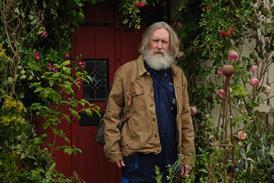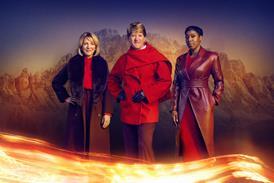The role could be at risk in the age of streaming, but their empathetic and skilful contributions would be sorely missed
The Pips. The Shipping Forecast. The silence on BBC Radio 4’s Six O’Clock News after the newsreader says “good evening” and before the Big Ben bongs. These are broadcasting rituals that feel like they have been there forever and will be there forever. British quirks that you would mess around with at your peril. There’s a fourth one, the most under-rated, but perhaps the most important: television continuity announcers.
It’s one of those jobs that, at first glance, you think is easy to pull off – just say a few words before the next show. Yet it isn’t. Continuity is an artform. You have to reflect the mood of the show that has ended, while providing a bridge to the next, which you then tee up perfectly to time.
Your introduction must have wit and charm, without hogging the limelight, and be succinctly delivered in under 10 seconds. Miss your cue or overrun it and everyone remembers. Stumble over the words in any way and you’ll never forgive yourself.
If the station breaks down, you’re thrown on air to provide reassurance, even if you haven’t the foggiest clue what on earth is happening. You’re there during national moments, the highs and the lows, with your tone scrutinised and stored on YouTube forever.
You may be working any time from way before dawn to the middle of the night, but you can’t ever sound tired. And the most important day for you in the entire year? The evening of Christmas Day, when just about no one else is at work, but you are.
Yet if you get your words just right, and the stars align, what you say to audiences can stick. One such moment came from BBC1 announcer Duncan Newmarch back in 2020.
Only an hour or so after fresh Covid restrictions meant that many of us couldn’t see our friends or family that Christmas, Newmarch had to somehow get us into some sort of upbeat mood to cue us into the Strictly Come Dancing fi nal. A difficult feat.
“In a year that has kept us apart, whether you are watching in Tyne & Wear, Devon, Berkshire or Lincolnshire,” he said. “We’re all watching BBC1, together.” Without having to explain why, he summed up the companionship and connection that television brings us even in the hard times. I still think about it.
Continuity announcers get the national mood right time and time again, from national sporting moments to royal funerals. On the morning the news broke that Matthew Perry from Friends had died, Channel 5 announcer David Wartnaby dedicated repeats that morning to his memory, saying: “One thing we can do is just share a few of the hours of laughter that he and Friends brought to living rooms.”
And in March, when Dave Myers from the Hairy Bikers died, a similar perfectly worded tribute aired on the channel Dave, too.
“The familiarity and intimacy of continuity announcers brings more coherence to a channel than any expensive rebrand ever would”
In the age of streaming and falling linear TV audiences, channel bosses might be tempted to axe such continuity. After all, the order in which we watch shows now might be completely our own anyway. That would be a great shame. Continuity announcers not only introduce television, they literally are television. Their familiarity and intimacy brings more coherence to a channel than any expensive rebrand ever would.

Perhaps instead, broadcasters should find a way that continuity can be added to complement streamers. Channel 4 is already experimenting, with announcers popping up to plug other programmes when you stream a show, but there must be a lot more that can be done, especially on the BBC.
Continuity has always been there, adding something great to television. Wouldn’t it be great if those announcers can add something to the streaming world too?
- Scott Bryan is a media journalist, presenter and entertainment critic





























No comments yet